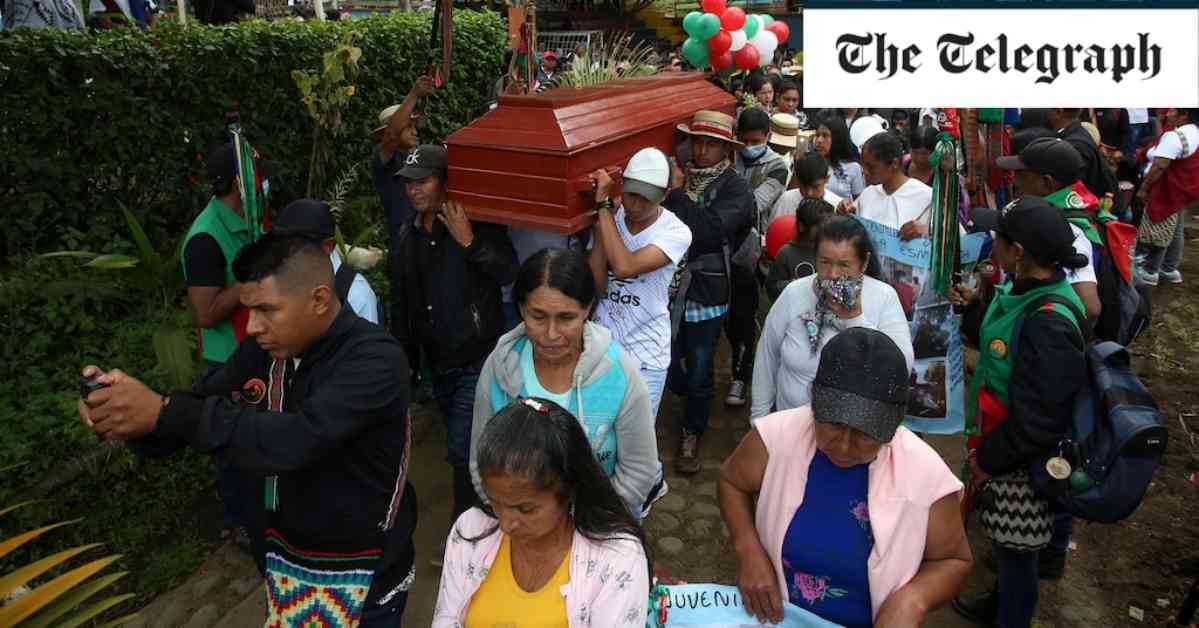Report: Latin America Identified as Deadliest Region for Environmental Activists in 2020
In a chilling report released by Global Witness, it was revealed that nearly 200 environmental activists lost their lives in 2020 while fighting to protect the planet. This alarming death toll brings the total number of killings to 2,106 since the environmental watchdog began investigating the targeting of activists protesting land grabs, mining and logging operations, or agribusinesses that contribute to the destruction of ecosystems.
The report underscores the grave risks faced by those who speak out against environmental injustices, particularly in Latin America, which was identified as the deadliest region on earth for activists. Shockingly, 85 per cent of the reported murders took place in Latin America, highlighting the urgent need for greater protection of environmental defenders in this region.
The Impact of Murders on Environmental Activists
The tragic loss of nearly 200 environmental activists in 2020 has sent shockwaves through the global community. These brave individuals were on the front lines of the fight against climate change, defending their land and communities from exploitation and destruction. Their deaths are a stark reminder of the dangers faced by those who dare to challenge powerful interests that prioritize profit over the planet and its people.
It is deeply concerning that more than 1,500 environmental defenders have been murdered since the adoption of the Paris Agreement on climate change in December 2015. This international agreement aimed to reduce greenhouse gas emissions and limit global warming, yet the reality on the ground tells a different story. The continued targeting and killing of activists demonstrate the urgent need for stronger protections and accountability for those who put their lives on the line for the planet.
Latin America: A Deadly Battleground for Environmental Activists
Latin America emerged as the deadliest region for environmental activists in 2020, with 85 per cent of reported murders occurring in this region. Among the countries grappling with the highest number of activist killings is Colombia, where 40 per cent of all deaths were recorded. Indigenous communities in Colombia have been disproportionately impacted by land disputes and human rights violations exacerbated by decades of armed conflict.
In Colombia, various industries such as mining, fishing, logging, and hydropower have been linked to the killings of environmental defenders. Organized crime groups are suspected of being responsible for many of these murders, highlighting the complex web of interests at play in the region. Despite government promises to pursue environmental justice, the situation on the ground remains dire, with peace processes faltering and activists facing increased threats to their lives.
Mexico: A Dangerous Landscape for Environmental Defenders
Mexico also witnessed a troubling number of activist murders in 2020, with 18 reported killings. Environmental defenders in Mexico are often targeted for defending indigenous rights against the expansion of mining operations, which are often linked to criminal gangs and human rights abuses. The report by Global Witness highlights the risks faced by activists in Mexico and warns of increasing pressure on defenders as demand for critical minerals rises.
Mining, in particular, has been identified as a high-risk industry for environmental defenders, with over 40 per cent of all mining-related killings between 2012 and 2023 occurring in Asia. The extraction of minerals vital for clean energy technologies has led to widespread human rights abuses and violence against those who stand up against destructive mining practices. The report underscores the urgent need for greater protection of environmental defenders in Mexico and around the world.
The Philippines: A Deadly Landscape for Land and Environmental Defenders
The Philippines has been identified as the deadliest place in Asia for land and environmental defenders, with 64 per cent of reported killings in the region occurring in the country. The situation in the Philippines is particularly concerning, with activists facing threats of enforced disappearances, abductions, and violence from government, business, and other non-state actors.
One of the most high-profile cases in the Philippines involved the abduction and detention of activists Jonila Castro and Jhed Tamano, who were investigating the economic and ecological impact of reclamation activities in Manila Bay. The women were subjected to psychological torture and forced to sign a fake confession linking their activities to the Communist Party of the Philippines, highlighting the dangers faced by activists in the country.
The Global Witness report sheds light on the brutal methods used to suppress dissent in the Philippines, including criminalization, abductions, and murder. Environmental defenders in the country are at high risk of retaliation from powerful interests who seek to silence opposition to climate-destructive projects. The report calls for greater accountability and protection for activists in the Philippines and other vulnerable regions.
Conclusion: Protecting Environmental Defenders in a Dangerous World
The alarming number of environmental activist killings in 2020 serves as a stark reminder of the risks faced by those who defend the planet and its people. The Global Witness report highlights the urgent need for greater protections, accountability, and justice for environmental defenders around the world. Governments, businesses, and civil society must work together to ensure that activists can carry out their vital work without fear of violence, intimidation, or persecution.
As the climate crisis worsens, the voices of environmental defenders become even more critical in the fight against environmental destruction. It is essential that we stand in solidarity with those who put their lives on the line for the planet and work towards a more just and sustainable future for all. Only by protecting environmental defenders can we truly safeguard the health of our planet and secure a better world for future generations.












